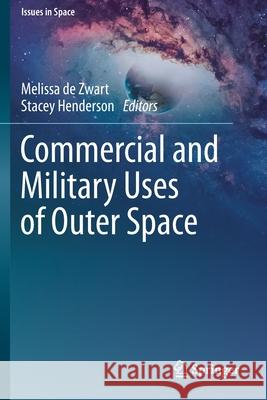Commercial and Military Uses of Outer Space » książka
topmenu
Commercial and Military Uses of Outer Space
ISBN-13: 9789811589263 / Angielski / Miękka / 2022 / 206 str.
Commercial and Military Uses of Outer Space
ISBN-13: 9789811589263 / Angielski / Miękka / 2022 / 206 str.
cena 523,30
(netto: 498,38 VAT: 5%)
Najniższa cena z 30 dni: 501,19
(netto: 498,38 VAT: 5%)
Najniższa cena z 30 dni: 501,19
Termin realizacji zamówienia:
ok. 22 dni roboczych.
ok. 22 dni roboczych.
Darmowa dostawa!
This edited book brings together a diverse range of chapters on space related topics. The authors included in this book are drawn from Australia and overseas, from academia, government, industry, civil society and the military. This book contains chapters that cover topics such as law, science, archaeology, defence, policy, and more, all with a focus on space. This edited collection is a timely international and interdisciplinary book, which addresses some of the contemporary issues facing activities in space and those attempting to understand, use and regulate the space domain.
This edited book seeks to normalise the role of women as experts in the space sector, by not calling attention to the fact that all the authors are women – they are all experts in their respective fields who just happen to be women. Bringing together these contributions in this book in turn promotes the inclusion of diversity in the space sector. This edited collection is an opportunity to influence the development of the space industry – in terms of gender diversity, and diversity of disciplines and thinking – while it is in its formative stage, rather than trying to redress imbalances once they are entrenched in the industry.











